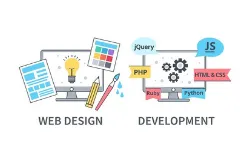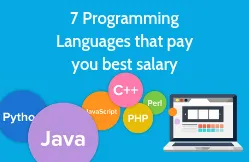What skills do you need for HR?
The presence of Human Resources (HR) professionals is no longer a luxury item, but rather, a compulsory step toward organizational success. HR professionals are employees’ engagement main propellers, doing their best to maintain compliance with labor laws, to develop the organization and to support business performance. Combining this job is not a simple undertaking.
Here are the skills do you need for HR
Communication Skills:
Communication, which is of strategic importance in HR activities, takes the lead place there. HR employees have to convey in a straightforward and empathetic manner to the staff, management, and senior leadership. They must have good skills in active listening, conflict resolution, and delivery of sensitive information in a friendly manner.
Interpersonal Skills: The HR issue of building relationships is a main competence on the part of the HR. HR team members should be trustworthy, and empathetic, and should be able to establish relationships at any level. It is of paramount importance in managing patient data effectively to possess these skills to a confidence level as they will need it from time to time.
Emotional Intelligence (EI):
EI is a key factor in both one's understanding and control of emotional states, with others as well as within oneself. In light of this, adept HR personnel with high EI synchronize with conflicting minds, conflict resolution, and building a cordial and decent workplace. Also, they are able to recognize and meet employees’ emotional needs as well, which leads to the rise of job satisfaction, productivity, and therefore employees’ growth.
Ethical and Legal Compliance: HR professionals must have a developed competence in the area of labor regimes, laws, and norms. They must guarantee that the employer will adhere to the laws and ordinances that stipulate the hiring of an individual, treatment of staff, harassment, and workplace rights.
Problem-Solving Skills:
This is the kind of wide spectrum of complex processes HR departments deal with every day from conflict in the organization to restructuring entire businesses. Powerful problem-solving skills allow them to explore the issues that are causing a problem with an analytical view, to come up with solutions that will be effective and to implement those solutions. From settling of grievances to enhancing employee well-being or data-based decision-making among various facets of HRM, a critical and analytical frame of mind is certainly a key asset.
Strategic Thinking:
Beyond ordinary activities, HR professionals are to design all their initiatives in adherence to the overall strategy of the organization. They should be able not only to cope with the current situation but also to foresee future changes, find chances in the market and act before such issues actually appear in the workplace. Strategic HR engagement encompasses manpower forecasting, talent development plan models, and also development methodologies of the personnel to ensure long-term corporate success.
Adaptability and Flexibility:
The corporate world in our times has speeding up the pace and heightened turbulence as its main features. HR professionals cannot be rigid and set in stones; they need to be adaptable, adapt to rapidly changing situations,and keep up with the fast-paced technologies and practices. Flexibility can be seen as a determining factor in finding and maintaining relevance and efficacy in HR roles when considering implementing new HRIS systems or adapting to trends related to home-based work.
Analytical Skills:
Data-driven strategic decision-making is increasingly crucial for Human Resource professionals. HR must know how to collect, interpret, and analyse data to translate these into strategic initiatives. Discussing these examples such as measuring employee engagement, turnover rates, or diversity metrics, analytics skills help HR managers make decisions with much better chances for success which leads to organization effectiveness.
Leadership and Influence:
However, sometimes the most important of the power of HR professionals is that they may not necessarily hold formal leadership positions within the organization but can exercise influence on a supreme level. Effective leadership skills in people management not only allow HR directors to excite their employees and steer change processes successfully but also to promote good human resource approaches across the organization.
Apponix Academy is an envisioned learning platform to practice all the norms associated with human resources management and has designed custom-made courses and training sessions keeping in mind the most prestigious of industries. The HR course becomes more interactive due to this, the learners experience realistic recruitment, employee relations, and organization development. While it puts the quality of educational material as 1 priority, Apponix Academy concentrates on the skills required in real-world situations and modern HR practices, thus enabling learners to grasp the intricacies of the industry alluringly.







